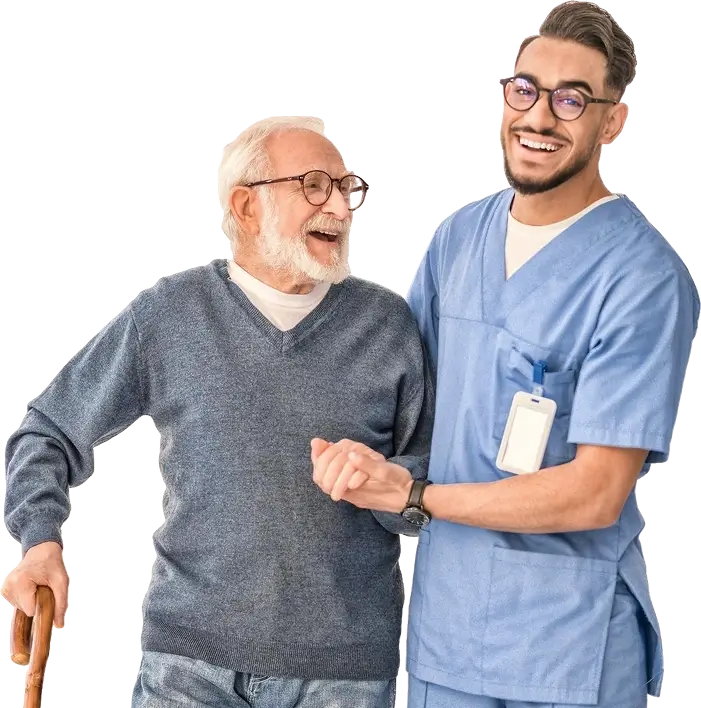There’s so much to think about when you’re helping a loved one prepare to enter a memory care community.
You want to make their transition as smooth as possible, so they’ll feel at home from the start — but when it comes to knowing what to pack and what to leave behind, the process quickly becomes overwhelming.
Let us help make an often-difficult process as easy as possible. In this guide, you’ll learn:
- How to create a comforting environment: Discover what items to pack to help a loved one feel at home in a new memory care community, focusing on familiarity and emotional comfort.
- Essential packing categories: Get a comprehensive list of necessary items, including clothing, personal care, hobbies, and important documents, along with considerations for therapy needs.
- What to leave behind: Understand which items, such as valuables or difficult-to-maintain clothing, are best left out of the packing list to ensure a smooth transition and safety.
Read on for a comprehensive memory care packing list to support your loved one’s comfort and well-being.
Does Mental Stimulation Help with Alzheimer’s?
The diagnosis of dementia or Alzheimer’s Disease can be scary, but mental stimulation has been proven to lower the risk of dementia and slow the progress of cognitive declines in people 75 years old and above.
Activities such as reading, word games, and board games are most effective for supporting mental clarity and may slow progression in the stages of dementia, along with improving quality of life, but there are numerous approaches in which mental stimulation occurs with positive results.
3 Benefits of Mental Stimulation for Seniors with Alzheimer’s
#1: May Improve Emotional Well-Being
While those with dementia may live in diverse situations – with some able to remain in their homes with caregivers, some living with children in their homes, and many living in skilled nursing facilities – mental stimulation is essential for emotional well-being.
Regardless of the living arrangements, the risk of under-stimulation is that it often leads to anxiety, depression, boredom, and sometimes negative behaviors.
Continued lack of stimulation and isolation can lead to a much faster decline in cognition and physical abilities. With these factors in mind, an engaging and stimulating environment must be provided to the patient as much as possible for optimal quality of life.
Alternately, the benefits of mental stimulation for Alzheimer’s patients in the forms of socialization with others, music therapies, task completion, reading, or other activities they enjoy not only boost their mood, but improve their feelings of self-identity. In fact, simple socialization ranked the highest for positive impact.
#2: May Support Cognitive Function
Activities that require mental stimulation, such as reading, puzzles, or interactive games, are particularly important for seniors with dementia.
Studies support activities that focus on personal identity and past experiences are more effective to prevent rapid declines, such as memory exercises and reminiscing on prior times of their life – encouraging the patient to draw from long-term memory banks.
The act of conversation with open-ended questions and interactions may not seem important, but social engagement and speech can be of utmost importance in a daily routine.
Additionally, treatments such as neurostimulation, medications, and non-medical approaches are also being developed to combat the progression of dementia by stimulating certain areas of the brain.
#3: Enhances Social Interactions
Social interactions with others are vital to a loved one with dementia, as feelings of confusion and isolation are common. Connecting with others socially promotes conversation, comradery, and may help reduce negative feelings or behaviors.
Research has been completed noting that patients with dementia may receive as little as two minutes of quality social interactions within the course of the day, leading to feelings of significant isolation and potentially negative behaviors.
Interactions with others encourage the continued exercise of language and communication – verbal and nonverbal – abilities, allowing these patients to continue to be part of a community, promote autonomy and positive feelings of control.
How Do You Mentally Stimulate Someone with Alzheimer’s Disease?
During the early stages of dementia, your loved one may withdraw from activities they once enjoyed, but it is vital to keep them stimulated as much as possible. Small group or individual activities may be most beneficial, so they are not overwhelmed by the surrounding environment.
Ideas and activities for mental stimulation involve:
- Puzzles and games
- Science experiments
- Creative writing
- Arts and crafts
- Housekeeping duties
- Group exercise classes
- Music therapy
- Taking a drive to familiar locations or places with pleasant memories
7 Activities That Provide Mental Stimulation for Seniors with Alzheimer’s
#1: Puzzles and Games
Participating in cognitively stimulating games and activities may delay not only the onset of dementia but also the progression of cognitive declines.

